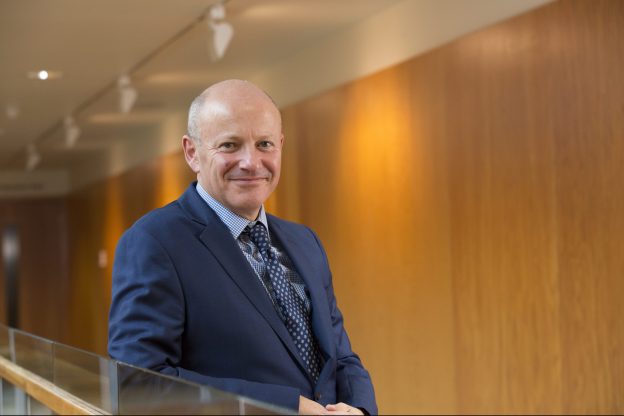When did you join the University and why?
A Senior Lectureship in Drama came up at Kent in 2000, which was rare those days. With my eldest son about to start primary school in London, a move to Canterbury with its excellent schools and a bit more space felt like a positive step. The drama department was then, and still is, among the biggest and best in the UK. I joined Kent in September and was fortunate enough to begin with a term’s externally funded sabbatical – a soft landing.
What did you do before joining Kent?
I started a PhD in contemporary Polish theatre in autumn 1989, an interesting time to be researching there. I performed with a Polish theatre group about whom I was also writing, which led to work as a Movement Director in companies such as the RSC and the Royal National Theatre. I collaborated with some very famous actors, though to list them would be namedropping! I gained my first permanent 0.5 position in 1993 and continued to mix academic and theatre work for a few years until I decided to give my all to research and teaching.
Why has the new College been created and what’s its remit?
I have now been Dean for four years. From the beginning, I saw benefits in joining up our excellent support for postgraduates with that for research staff, especially postdocs who were ‘falling between the gaps’. I commissioned a report which confirmed this problem and gave us clear guidance on what was needed to support all staff who research across the whole academic lifecycle.
Tell us more about who’s who within your College team?
Within the Graduate and Researcher College, we’re a very small team and there’s been a lot of change over the last year, from people departing through KVSS to maternity leaves. But it’s all good, and we’re finding ways to adapt as a team so we can deliver on our expanded remit. Core team members are sustaining and enhancing our PG activity and support, in particular with the Global Skills Award for Master’s students and our Researcher Development Programme, while a new post will work closely with myself and colleagues on rolling out our programme for academic researchers.
What are your immediate plans for the newly formed College?
The imminent task is to sustain what the team has been doing so well for our postgraduates, while incorporating new workshops, activities and networks for academic staff, ultimately all geared towards improving our research performance. We signed up to the Concordat to support researcher career development in June 2020, so can’t shirk this. We are also active in several UKRI-funded postgraduate consortia which has been very preoccupying during Covid, ensuring we help our research students fairly with the limited resources we have. Inevitably, this is rumbling on…
Why do you think postgraduate education has a pivotal part in Kent’s future success?
Delivering quality postgraduate taught courses and offering excellent research supervision has to be a priority for any institution that is serious about conducting research. As a REF panel member (in 2014 and imminently for REF 2021 in subpanel 33), I see clearly how vital postgraduates are to academic life.
Covid-19 permitting(!), what are your interests away from work?
Not surprisingly, I enjoy live events such as concerts and theatre, overseas if possible, and often in Poland. Is that not work though? In case it is, I also play tennis. I’m a bit of a fidget, so that burns some energy.
What’s the best piece of advice you’ve ever been given?
Engaging your legs can greatly enhance your serve!
